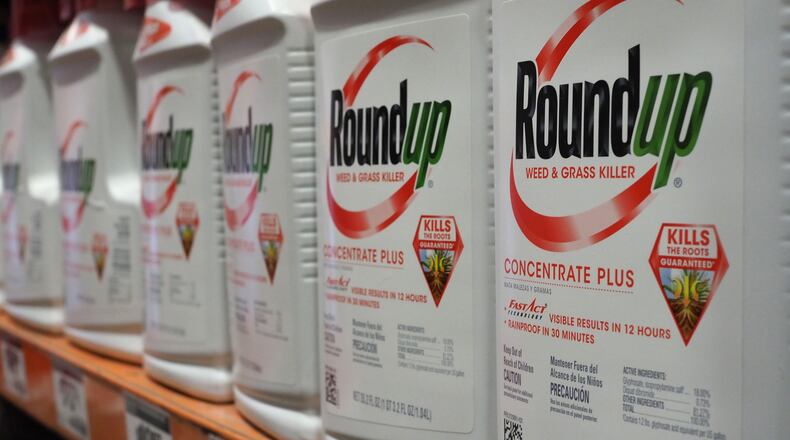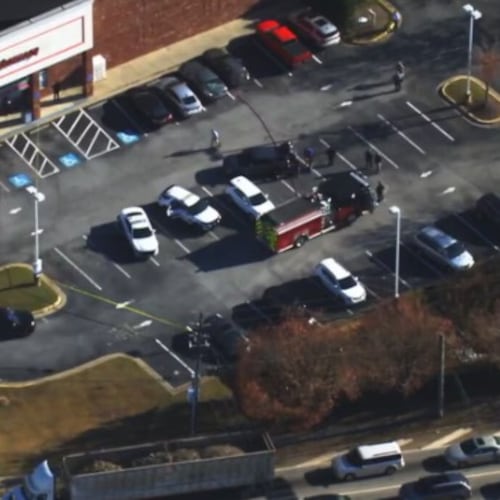After being hit with a $2 billion verdict in Cobb County, Monsanto has settled a Georgia man’s lawsuit alleging his 21-year exposure to its weedkiller, Roundup, caused his blood cancer.
The settlement terms are confidential, a spokesperson for Monsanto told The Atlanta Journal-Constitution, adding the company has also just settled some other cases.
Thousands of people around the country have filed lawsuits claiming Monsanto failed to warn them that the glyphosate in Roundup can cause cancer. Monsanto and its parent company, Bayer, maintain the product is safe.
The Monsanto spokesperson said the settlement terms are covered by Bayer’s “existing provisions.”
“The company will consider settling cases when it is strategically advantageous to do so, and has been able to resolve cases in which we had significant adverse verdicts on terms that we think best serve our interests,” they said.
Bayer said on its website that as of Oct. 15, 132,000 of approximately 197,000 Roundup-related claims have been resolved or deemed to be ineligible.
“With a winning record in court, the company is fully confident in its legal strategy and will continue to defend cases at trial based on the overwhelming scientific and regulatory evidence supporting the safety of our glyphosate products,” Bayer said.
Lawyers for Dalton resident John Barnes, the plaintiff in the Cobb County case, did not immediately comment on the settlement.
Cobb County jurors awarded Barnes $65 million in compensation at trial in March. They also awarded him $2 billion in damages designed to punish Monsanto.
The verdict was the second largest in Georgia, behind a $2.5 billion verdict awarded against Ford Motor Company in February.
Ford recently settled that case and a similar one that had elicited a $1.7 billion verdict in 2022, the largest in the state at the time.
In Barnes’ case, Monsanto had sought to wipe out the $2 billion verdict. A hearing on its request was scheduled for later this month.
Barnes, in his 50s, alleged he regularly used Roundup to kill unwanted weeds and grass at his Dalton home between 1999 and 2020. He said the product often got on his skin and clothes and that he was diagnosed with non-Hodgkin lymphoma, a type of blood cancer, in March 2020.
Case filings show Barnes’ cancer went into remission in 2021, the year he sued, but that he continued to get chemotherapy treatments every two months to hold it at bay.
Barnes and thousands of plaintiffs like him claim Monsanto has known about the link between glyphosate and cancer for decades and has downplayed the risk while prioritizing profit over consumer safety.
Monsanto argued those claims are not supported by scientific evidence.
Lawsuits alleging injuries from exposure to toxic substances are notoriously difficult to win, for both sides. They typically involve conflicting data and expert testimony about complex medical conditions and lay bare the plaintiff’s entire life history for scrutiny.
Lawyers also have to explore every other possible contributing cause of the injury.
“All of the cards are stacked against you,” former Georgia Gov. Roy Barnes, a plaintiff attorney in Marietta, told the AJC earlier this year.
Gov. Barnes and his law firm partner, John Bevis, were among the plaintiff lawyers in the $2 billion case against Monsanto.
Cobb County State Court Judge Jane Manning officially ended the case on Wednesday at the parties’ request.
About the Author
Keep Reading
The Latest
Featured



